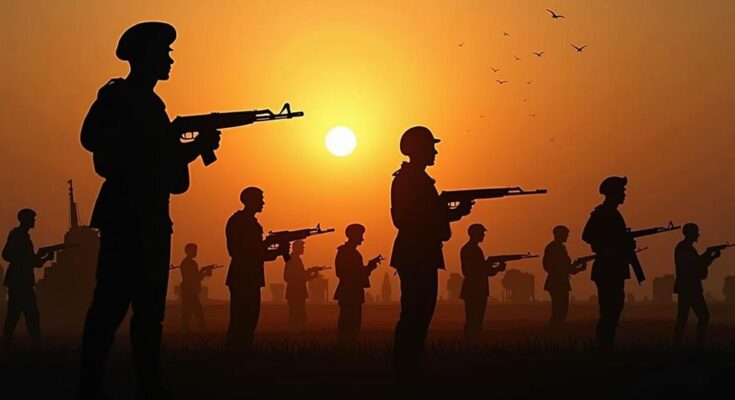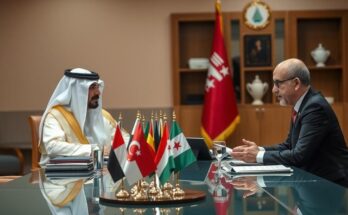The Sudanese military denies UAE allegations of an airstrike on the UAE ambassador’s residence in Khartoum, blaming the paramilitary RSF instead. Amid ongoing conflict since April last year, the situation has escalated into a humanitarian crisis affecting millions. The UAE’s foreign ministry has highlighted the importance of protecting diplomatic premises in response to the claim.
The Sudanese military has formally rejected allegations made by the United Arab Emirates (UAE) regarding an airstrike on the UAE ambassador’s residence in Khartoum, describing the act as a ‘heinous attack.’ The UAE’s foreign ministry reported significant damage to the residence and underscored the necessity of safeguarding diplomatic premises and staff, in line with established international protocols governing diplomatic relations. In response, the Sudanese military asserted that their forces do not target diplomatic establishments and have accused the paramilitary Rapid Support Forces (RSF) of conducting these reprehensible actions. The military’s comments suggest ongoing tensions with the RSF, whom they claim have received assistance from foreign nations, including the UAE. This incident occurs amidst a backdrop of intense conflict between the Sudanese army and RSF forces, which has led to numerous civilian casualties and a humanitarian crisis affecting millions in Sudan, further exacerbated by a cholera outbreak due to flooding.
The ongoing conflict in Sudan represents a complex power struggle, primarily between the Sudanese army and the paramilitary RSF. This conflict has been escalating since April of the previous year, with both factions contesting for power during what was supposed to be a transition to civilian rule following the ousting of former President Omar al-Bashir. The situation has led to widespread violence and humanitarian crises, affecting nearly half of Sudan’s population, who are now in dire need of assistance. Furthermore, the legitimacy of foreign nations’ involvement in the conflict, particularly the UAE’s alleged support for the RSF, raises questions regarding international diplomatic practices and the protection of diplomatic missions amid warfare.
In summary, the denial by the Sudanese army of the alleged attack on the UAE ambassador’s residence highlights the fraught military dynamics in Sudan, as well as the implications of foreign involvement in its internal conflicts. As violence continues, the humanitarian toll mounts, and diplomatic relations remain strained, the international community must remain vigilant in its efforts to stabilize the situation and support the needs of the civilian population.
Original Source: news.sky.com




